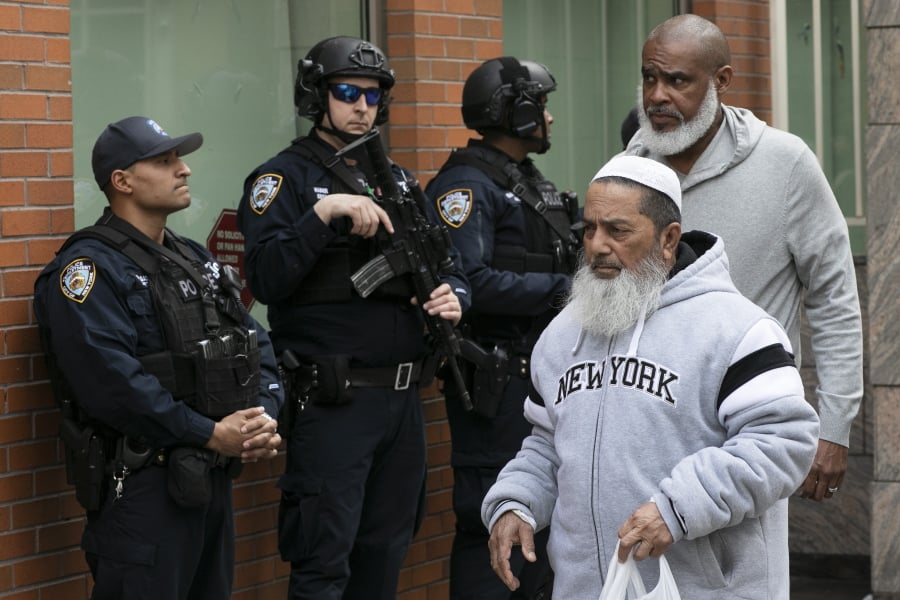DETROIT — A rabbi who packs a gun. A church installing security cameras. A police car protecting a mosque.
Houses of worship have traditionally been places of refuge where strangers are welcome. But high-profile attacks in recent years on an African-American church in Charleston, S.C., a synagogue in Pittsburgh and now mosques in New Zealand have made worshippers and their prayer leaders rethink how protected sanctuaries really are.
“People are fearful for their lives, for their houses of worship, for the sanctuary of this mosque and other places of worship like the synagogues and African-American churches that are being attacked. People are concerned,” Imam Mohannad Hakeem said while attending Friday prayers at the Islamic Center of Detroit.
He spoke after a horrifying attack in New Zealand left 50 people dead at two mosques during midday prayers. A 28-year-old Australian is the main suspect and called himself in a manifesto a white nationalist out to avenge attacks in Europe by Muslims.
History shows sanctuaries are not immune from violence, as illustrated by bombings at African-American churches during the Civil Rights era. And in countries struggling with sectarian violence, attacks on houses of worship are much more frequent. But for countries at peace, the attacks are much rarer.
For many, houses of worship are sanctuaries where congregants bond with their shared sense of faith and community. The recent attacks have made some question whether houses of worship have turned into soft targets, losing some of their sense of sacredness.
In the parking lot of the Islamic Center of Detroit Friday, a watchful police officer sat in a squad car, keeping an eye out for any signs of potential trouble. Worshippers thanked the officer — offering him food, drinks, a handshake. Inside, Dearborn Police Chief Ronald Haddad greeted congregants with handshakes and hugs. Dearborn is a Detroit suburb with a large Arab and Muslim population.
Haddad said he doesn’t know if houses of worship are more of a target today than in previous times, but the scale and scope of the attacks in New Zealand attracted his attention.
“Given what happened in New Zealand last night, we want to make sure that our community feels safe and secure,” he said.
In Chicago, the Muslim Community Center and the Downtown Islamic Center increased security during Friday prayers. Armed police officers stood guard outside and inside throughout the afternoon service.
Dana Al-Qadi, 29, an engineer, was committed to attending after the attacks but said doing so brings her a feeling of peace mixed with fear.
“People are their most vulnerable when they’re at the masjid (mosque). It’s where they bring their worries, their weaknesses, and try to speak to God. They’re in such a vulnerable state of mind and spirit. In that moment, someone decided to be such a transgressor. That brings me so much sadness,” she said.
For many in the Jewish community, last year’s synagogue shooting attack in Pittsburgh sparked a similar sense of vulnerability.
Eleven people died in what was the worst attack on Jews in U.S. history on Oct. 27 when an anti-Semitic truck driver is believed to have spewed his hatred of Jews as he opened fire on the Tree of Life Congregation synagogue. Robert Bowers has pleaded not guilty to counts including using a firearm to commit murder and obstruction of religious exercise resulting in death.
After the attack, Rabbi Yaakov Zucker of Chabad Jewish Center in the town of Key West started going to target practice along with a handful of congregants.
“We pray on one hand, but we’re also armed on the other hand, not in a vigilante way … I hope I’ll never have to use it, but I am ready for any threat that enters my temple. I do feel responsibility,” he said.



